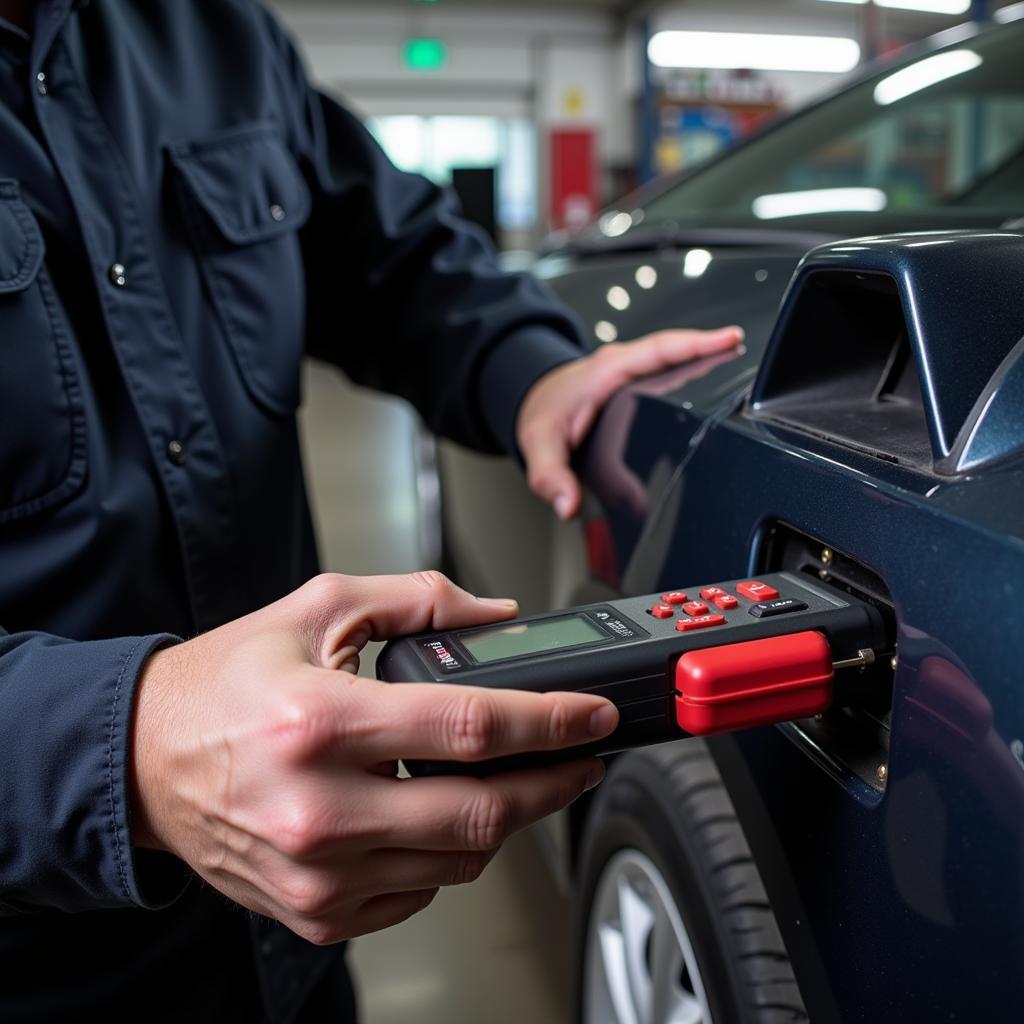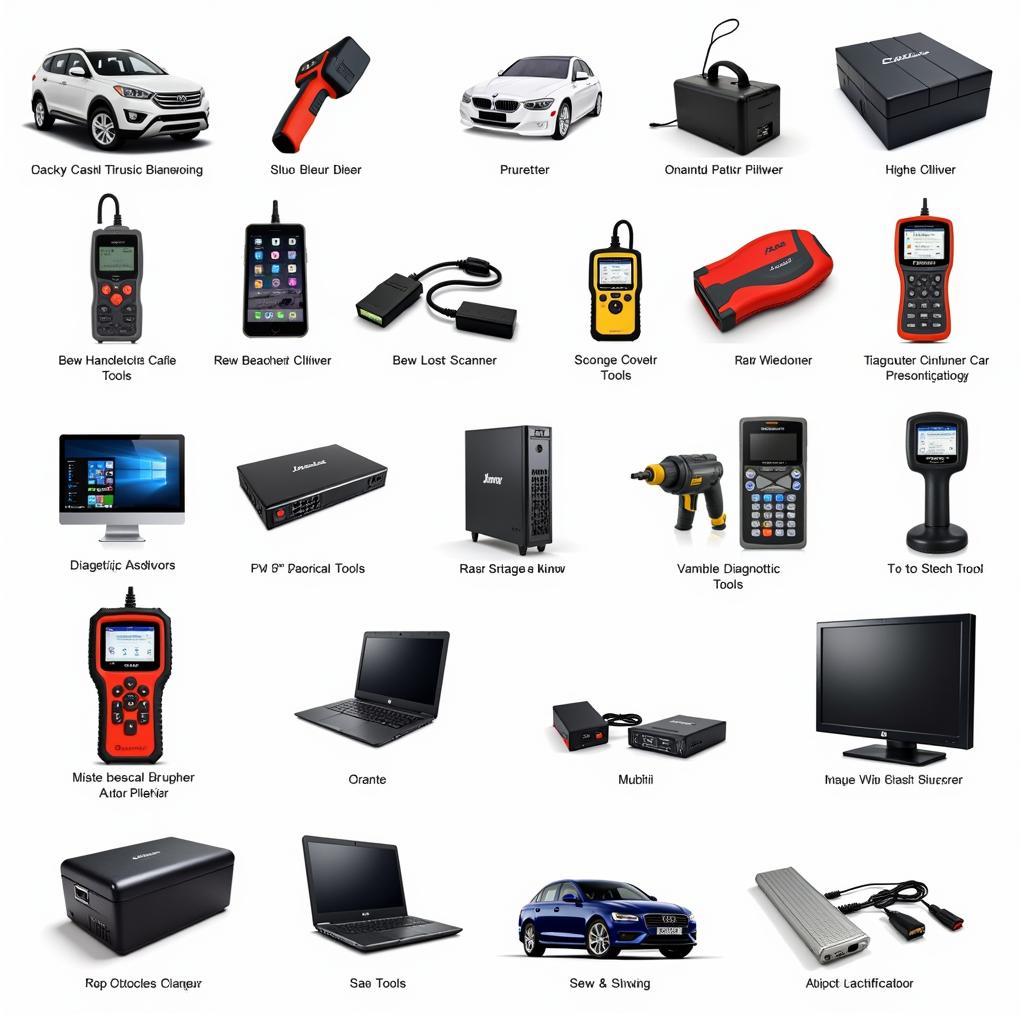Car diagnostics used to be a black art, reserved for seasoned mechanics with decades of experience. But times are changing. With the right resources and dedication, anyone can learn the ins and outs of car diagnostic and even turn it into a lucrative career.
This comprehensive guide will walk you through everything you need to know, from understanding the basics to mastering advanced diagnostic techniques. Whether you’re a car enthusiast looking to save money on repairs or someone considering a career in automotive technology, this guide is your roadmap to success.
Understanding the Basics of Car Diagnostic
Before diving into the intricacies of car diagnostics, it’s crucial to grasp the fundamentals.
What is Car Diagnostic?
Car diagnostic involves using electronic tools and software to communicate with your car’s onboard computer. This computer, also known as the Engine Control Unit (ECU), continuously monitors various systems in your car, collecting data from sensors located throughout the vehicle.
 Car ECU Diagnostic Process
Car ECU Diagnostic Process
When a problem arises, the ECU triggers a warning light on your dashboard, such as the check engine light. A car diagnostic tool allows you to read the error codes stored in the ECU’s memory, providing valuable insights into the nature of the problem.
Why is Car Diagnostic Important?
Car diagnostic plays a vital role in modern vehicle maintenance and repair for several reasons:
- Accurate Problem Identification: Gone are the days of relying solely on guesswork or visual inspections. Car diagnostic pinpoints the root cause of issues, saving you time and money on unnecessary repairs.
- Improved Repair Efficiency: With a clear understanding of the problem, mechanics can work more efficiently, reducing labor costs and getting your car back on the road faster.
- Preventative Maintenance: Regular car diagnostic scans can identify potential problems before they escalate into major issues, saving you from costly breakdowns and extending the life of your vehicle.
How to Learn Car Diagnostic
Now that you understand the importance of car diagnostics, let’s explore the different paths you can take to gain proficiency in this field.
1. Start with the Basics
Begin by familiarizing yourself with the fundamental concepts of automotive technology:
- How Cars Work: Gain a basic understanding of the major components of a car, including the engine, transmission, braking system, and electrical system.
- Basic Electronics: Learn about voltage, current, resistance, and circuits, as these concepts are crucial for understanding car electronics.
- OBD-II Systems: The On-Board Diagnostics II (OBD-II) system is the standard communication protocol used in modern vehicles. Learn about its functions, how to access it, and how to interpret the data it provides.
You can find numerous online resources, books, and courses that cover these fundamental topics.
2. Invest in a Car Diagnostic Tool
A car diagnostic tool is your gateway to the world of car diagnostics. While professional-grade tools can be expensive, there are affordable options available for beginners.
 Car Diagnostic Tools
Car Diagnostic Tools
Here are some factors to consider when choosing a car diagnostic tool:
- Functionality: Determine the features you need, such as reading and clearing error codes, viewing live data streams, and performing component activations.
- Vehicle Compatibility: Ensure the tool is compatible with your car’s make, model, and year.
- User Friendliness: Choose a tool with an intuitive interface and easy-to-understand instructions.
- Budget: Set a budget and explore the options within your price range.
3. Utilize Online Resources
The internet is a treasure trove of information for aspiring car diagnostic technicians. Websites, forums, and YouTube channels dedicated to car repair and diagnostics offer a wealth of knowledge, often for free.
Here are some valuable online resources:
- DiagFixPro: Our website provides comprehensive articles, guides, and reviews on various aspects of car diagnostics.
- Automotive Forums: Engage with fellow car enthusiasts and experienced mechanics to ask questions, share knowledge, and learn from others’ experiences.
- YouTube Channels: Many reputable mechanics and automotive experts create detailed videos explaining diagnostic procedures, troubleshooting tips, and product reviews.
4. Consider Formal Education or Training
While not strictly necessary, formal education or training programs can provide a structured learning experience and enhance your credibility as a car diagnostic technician.
Here are some options to consider:
- Vocational Schools: Many vocational schools offer certificate or diploma programs in automotive technology, which typically cover car diagnostics as a core component.
- Community Colleges: Some community colleges offer associate degrees in automotive technology, providing a more in-depth education.
- Manufacturer Training: Car manufacturers often offer specialized training programs for their vehicles, giving you in-depth knowledge of their specific diagnostic systems.
5. Practice Makes Perfect
The key to mastering car diagnostics, like any skill, is consistent practice. Start by practicing on your own vehicle or volunteer to help friends and family with their car troubles. As you gain experience, consider working on a wider range of vehicles to broaden your knowledge and expertise.
Tips for Effective Car Diagnostic
Here are some valuable tips to enhance your car diagnostic skills:
- Start with a Visual Inspection: Before connecting any tools, perform a thorough visual inspection of the vehicle. Look for any obvious signs of damage, loose connections, or fluid leaks.
- Consult Repair Manuals: Repair manuals specific to your car’s make and model are invaluable resources. They provide detailed information about the vehicle’s systems, wiring diagrams, and diagnostic procedures.
- Take Your Time: Don’t rush the diagnostic process. Carefully analyze the information provided by the diagnostic tool, consult repair manuals, and research any unfamiliar error codes.
- Don’t Be Afraid to Ask for Help: If you encounter a challenging problem or are unsure about a repair, don’t hesitate to seek assistance from a qualified mechanic.
Conclusion
Learning car diagnostic can seem daunting at first, but with the right approach and dedication, it’s an achievable goal for anyone with an interest in cars. By following the steps outlined in this guide, you can gain the knowledge and skills necessary to confidently diagnose car problems and save money on repairs. Whether you’re a car enthusiast or aspiring automotive professional, mastering car diagnostic is a rewarding and valuable skill.
FAQs
1. What does a car diagnostic scan cost?
The cost of a car diagnostic scan can vary depending on your location and the service provider. You can learn more about the average costs in our detailed article: how much does a car diagnostic scan cost.
2. What is a DTC on car diagnostics?
DTC stands for Diagnostic Trouble Code. These codes are generated by the car’s ECU when it detects a problem. To understand more about DTCs, read our comprehensive article: what is a dtc on car diagnostics.
3. What is the best car diagnostic software?
Choosing the right car diagnostic software depends on your needs and budget. We’ve reviewed some of the best options available in our article: [what is the best car diagnostic software](https://diagfixpro.com/what-is-the best-car-diagnostic-software/).
4. How can I start a car diagnostic business?
Starting a car diagnostic business can be a rewarding venture. We have a comprehensive guide on how to start a car diagnostic business that covers everything from planning to marketing.
5. What does a car diagnostic consist of?
A car diagnostic typically involves connecting a scan tool to the vehicle’s OBD-II port and reading the stored error codes. Learn more about the complete process in our article: what does a car diagnostic consist of.
If you have any further questions or need expert assistance with car diagnostics, feel free to contact us via WhatsApp at +1(641)206-8880 or email us at [email protected]. Our team of car diagnostic specialists is available 24/7 to help you keep your car running smoothly.

Leave a Reply